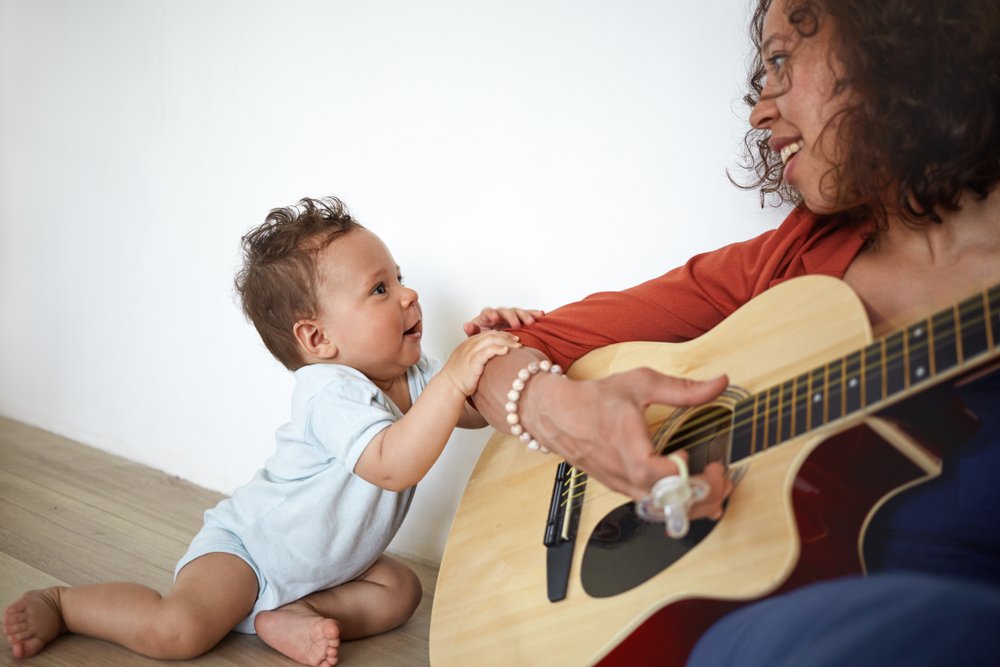Key points:
1. Music positively impacts brain development and learning motivation.
2. Music enhances memory and cognitive functions in children.
3. Musical activities activate thinking and motor skills.
4. Exposure to different music genres and environmental sounds is beneficial.
It’s well known that music has a positive effect on the brain, even babies inside their mother’s womb react to it. Music has been shown to contribute to the joyful experience of creating and fosters a higher motivation to learn.
Think about how music makes you feel, does it change your mood? Your little one is no different. The value of music in children’s education is a subject of discussion among researchers. However, this is not about raising the next Mozart, but about exposing your little one to things that positively contribute to their development.
How many times has a song been stuck in your head? We know that music can easily be ingrained in our brain. Studies show how music enhances the memory, recognition, and attention of patients with Alzheimer’s Disease. Magnetic Resonance Imaging (MRI) has shown that the left temporal lobe is larger in musicians than in non-musicians, and that the first group might have better developed cognitive functions.
Because verbal memory is mediated mainly by the left temporal lobe, research shows how music boosts memory skills. A study that compared adults that had music training before 12 and those who didn’t showed that music training in childhood has long term positive effects on the verbal memory.
Important thinking skills and cognitive processes are being activated as your little one learns to dance to a song’s beat, clap to the beat of a song, recognize different music instruments, and even sing some lyrics by memory. As your child explores musical instruments (e.g., presses a key that makes certain sounds), they’re experimenting with cause and effect and figuring out how objects work. They’re learning new concepts and how to make different sounds, they’re noticing how some are deeper than others and how each sound carries a different pattern and rhythm. Inside their brain, their memory and language circuits are being activated creating networks that involve attention and concentration abilities. They’re even incorporating fine and gross motor skills when dancing or manipulating an instrument.
Music training has also been associated with executive functions. Studies have found significant differences between children with and without musical training in the areas of reasoning skills, sound discrimination, and motor tasks. Furthermore, a positive correlation has been found between non-verbal intelligence and musical aptitude.
Through experience with different instruments and types of music, children can become aware of differences in volume, pitch, and tone. Studies have shown that infants as young as 4 months can distinguish between different tones of voice.
Music has also been linked with executive functions and the inhibitory control. As children understand music, they are also fostering spatial-temporal skills that, later, will serve for mathematical or problem-solving abilities. Findings have shown that even playful group music activities have a positive effect on preschoolers’ linguistic skills.
Some tips:
- Expose your little one to different genres of music and let them absorb the different rhythms and melodies.
- Explore the different environmental sounds: rain, doorbell, crickets, phone, shower, birds. Talk about them and identify the ones you like most and try imitating them.
- Experiment with different moves when playing a song: clapping, stomping, moving your arms up and down, or even using percussion instruments to reinforce rhythmic patterns. If you don’t have music instruments get creative and make your own drums, tambourines, and shakers using at home materials.
The important part is not about making the most beautiful music, but exploring sounds and exposing your little one to different learning environments.








